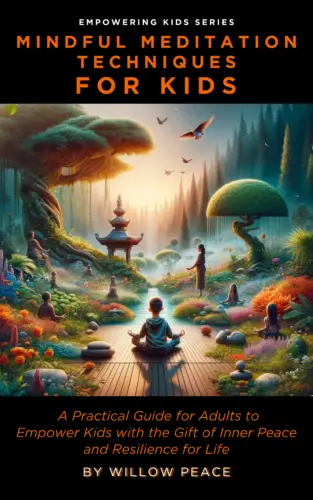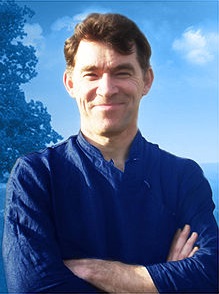Guest writer for Wake Up World
As you are no doubt aware, presently the United States is experiencing an opioid epidemic. There are many reasons for this—one of the most obvious being the reckless over-subscription of opiate-based painkillers by doctors, leading to dependency. But on a psychological level, we have to take into account the strong relationship between addiction and the lack of a sense of purpose.
To some extent, addiction is the result of a lack of purpose. It’s partly the consequence of experiencing what the psychologist Viktor Frankl called the ‘existential vacuum’—feeling as though there is no purpose or meaning to your life. With a strong sense of purpose, we become very resilient, able to overcome challenges, and to bounce back after setbacks. We are also better able to deal with—and perhaps more motivated to overcome – the painful effects of past trauma. We never wake up in the morning with no reason to get out of bed. Life seems easier, less complicated and stressful. Our minds seem somehow tauter and stronger, with less space for negativity to seep in.
But without a sense of purpose, we are more vulnerable to becoming depressed in response to negative events. We become more susceptible to psychological discord—to boredom, frustration and pessimism. We are more liable to feel the residual pain of trauma from the past (and traumatic past experiences in themselves have also been linked to addiction). Drugs and alcohol are therefore appealing as a way of escaping the psychological problems caused by a lack of purpose. But addiction can also be seen as an attempt to find a purpose. After all, when a person becomes an addict, their lives take on a very strong sense of purpose: to satisfy the addiction. I have often heard addicts describe how life simple life becomes in addiction. There is always a clear goal in your mind and a motivation behind every moment of your existence. Everything else is secondary to the overriding purpose of feeding your addiction.
And just as there is a relationship between addiction and a lack of purpose, there is a relationship between recovering from addiction and gaining a new sense of purpose. Research has shown that, without a new sense of purpose, recovery does not tend to last. The stronger and more established a person’s sense of purpose is, the greater chance they have of remaining sober. Partly this is because there has to be something to replace the sense of purpose provided by the substance, otherwise a person is likely to return to that purpose. At the same time, a new sense of purpose can provide the resilience needed to overcome the challenges that arise with new sobriety.
A Crisis of Purpose
In my view, the present-day prevalence of addiction is a least in part symptomatic of a crisis of purpose in secular Western culture. It’s partly the result of a sense of disorientation and frustration due to the lack of the availability of fulfilling, purposive modes of living. The primary purpose that our cultures offer is what you could call a ‘self-accumulative’ purpose. We are encouraged to think of happiness in terms of acquisition and achievement. We try to get as many qualifications as we can so we can get good jobs, earn good money, buy possessions and pleasures, and slowly work our way up the ladder of success. But it’s not surprising that so many people find this type of purpose unfulfilling. After all, there is very little evidence that material success and professional achievement contribute to personal wellbeing. And due to the fact that success and wealth are limited commodities, there is a great deal of competition for them. It’s easy for people to fall behind, to lose motivation, or even to fall off the ladder altogether.
Another possibility is a religious purpose. Religion is appealing to many people because it does provide a strong sense of purpose and meaning. However, taking on a religious purpose usually involves accepting questionable and irrational beliefs, and subsuming one’s individuality and intellectual independence within a pre-given framework, which is difficult for many of us to do. As a result, religion offers only limited help.
More Fulfilling Types of Purpose
To my mind, therefore, large-scale problems with substance abuse are an inevitable result of a culture that is ‘purpose deficient.’ It’s clearly essential to take appropriate social and political measures, such as reducing the availability of prescription opioids and funding recovery programs, but at the same time—from a longer-term perspective—we need to encourage the adoption of more satisfactory and fulfilling types of purpose, beyond self-accumulation and religion.
In a research project at my university, we studied the effects of different types of purpose and found that an altruistic and a ‘self-expansive’ purpose were much more strongly associated with well-being. (By ‘self-expansive’ we mean that a person’s sense of purpose is to grow, to expand themselves and their horizons, and to fulfill their potential. This often means following a creative path, or a path of personal or spiritual development.) Altruism is much more fulfilling than self-accumulation because it connects us to other people, and helps us to transcend a self-centered preoccupation with our own desires or worries. Altruism is also non-material, and therefore limitless. We don’t need to compete against each other for kindness. A self-expansive purpose is so fulfilling because it gives us a sense of dynamic movement, with feelings of flow and accomplishment and meaning.
So in order to transcend our present state of purpose deficiency (and so transcend the psychological discord that so easily leads to addiction), there ought to be a cultural movement to encourage the adoption of these different types of purpose. Rather than encouraging consumerism and competitiveness, we should be encouraging altruism, creativity and spirituality. Perhaps most of all, this should begin with an overhaul of education systems, which tragically neglect these areas, in favor of training pupils and students for a treadmill of unfulfilling striving.
Unless this happens—whilst it may be mitigated by social and political changes—the tragic specter of addiction will always hover over us.
Recommended articles by Steve Taylor, Ph.D:
- The Guru Syndrome: When Spirituality Turns Sour
- Are Children Saner Than Adults?
- Transformation Through Dying: The Aftermath of Near Death Experiences
- Elation: The Amazing Effect of Witnessing Acts of Kindness
- The Power of Forgiveness: The Transformational Effect of Letting Go of Resentment
- Transcendent Sexuality — How Sex Can Generate Higher States of Consciousness
- The Power Of Silence
- Happiness Comes from Giving and Helping, Not Buying and Having
- Empathy – The Power of Connection
- If Women Ruled the World – Is a Matriarchal Society the Solution?
About the author:
Steve Taylor is a senior lecturer in Psychology at Leeds Beckett University, UK. His latest books in the US are The Calm Center and Back to Sanity: Healing the Madness of the Human Mind. He is also the author of The Fall, Waking From Sleep, and Out Of The Darkness. His books have been published in 19 languages. His research has appeared in The Journal of Transpersonal Psychology, The Journal of Consciousness Studies, The Transpersonal Psychology Review, The International Journal of Transpersonal Studies, as well as the popular media in the UK, including on BBC World TV, The Guardian, and The Independent.
Connect with Steve at StevenMTaylor.com.
Still Trading Time for Money? There’s a Better Way.
You’ve always known the system was broken. Working harder doesn’t equal more freedom—it just keeps you stuck in someone else’s game.
It’s time to opt out.
The Freedom Formula isn’t another get-rich-quick scheme. It’s a proven business model backed by a 50-year-old company, designed for people who refuse to be trapped by outdated financial systems.
? Earn high-ticket commissions (57%+ per sale) with a business that actually helps people
? Leverage a system where our team closes your first $100K in sales for you
? Unlock passive, recurring income—so you can live life on YOUR terms
This is about sovereignty, not survival. No bosses. No begging for raises. No soul-sucking work that drains your energy and purpose.
Automation and AI are making traditional jobs obsolete. Most people will wait and hope for the best. But you? You see the shift happening.
Watch the FREE masterclass now and take back control of your future.
 If you’ve found value in our articles, we’d greatly appreciate your support by purchasing Mindful Meditation Techniques for Kids—A Practical Guide for Adults to Empower Kids with the Gift of Inner Peace and Resilience for Life.
If you’ve found value in our articles, we’d greatly appreciate your support by purchasing Mindful Meditation Techniques for Kids—A Practical Guide for Adults to Empower Kids with the Gift of Inner Peace and Resilience for Life.
In the spirit of mindfulness, we encourage you to choose the paperback version. Delve into its pages away from screen glare and notifications, allowing yourself to fully immerse in the transformative practices within. The physical book enriches the learning process and serves as a tangible commitment to mindfulness, easily shared among family and friends.
Over the past few years, Wake Up World has faced significant online censorship, impacting our financial ability to stay online. Instead of soliciting donations, we’re exploring win-win solutions with our readers to remain financially viable. Moving into book publishing, we hope to secure ongoing funds to continue our mission. With over 8,500 articles published in the past 13 years, we are committed to keeping our content free and accessible to everyone without resorting to a paywall.









